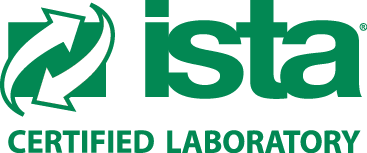Mechanical Shock Test
Mechanical shock testing simulates the physical forces an object may encounter while in distribution and use environments.
Shock testing is a type of reliability test that evaluates the ability of a product or package system to withstand physical shock inputs.
Mechanical shock testing, also called product fragility analysis, focuses on the physical forces an object may encounter while in distribution and use environments. The physical shocks a device may be exposed to during its lifetime may include earthquakes, explosions, or being dropped onto concrete, and more.
When a product or package system is exposed to mechanical shocks, it may suffer cosmetic or performance damage like those mentioned above. In addition, when a product isn’t designed to withstand the impacts, several related consequences can result, such as costly replacements, declining brand loyalty, or fewer sales. With mechanical shock testing, manufacturers can obtain essential insights on the rigidity of their test subject, and in turn, make more informed business decisions and product optimizations.
Frequently Asked Questions
Get answers to our most frequently asked questions.
What is the purpose of mechanical shock testing?
The purpose of mechanical shock testing is to measure the reliability of a product by subjecting it to various shocks that represent actual handling in the distribution and in-use environments. Data generated from these tests can be used to identify failure modes and optimize product and packaging design.
Some examples of shock types a device may be subjected to throughout its lifecycle include:
- Rough handling
- Field operation
- Transportation shocks
- Environmental shocks (i.e. earthquakes, military or avionic equipment)
- In-Use environments
By replicating these shocks in a controlled lab testing facility, our team can provide valuable insights into the robustness and performance of a test subject under typical and special circumstances.
What methods are used to perform mechanical shock and vibration tests?
Our accredited lab facilities are equipped to perform mechanical shock testing using the following methods:
- Programmable shock machines: Shock machines are programmable in the sense that the user can control all variables that go into the shock. A typical shock pulse has a shape, an acceleration level, a duration, and a velocity change. Depending on what you are trying to replicate and accomplish, these inputs are modified and refined to accurately represent a specific hazard.
- Programmable vibration tables: Vibration tables can also be used to perform shock testing. Much like the programmable shock machines, vibration tables are used for lower intensity shocks. In addition, when shocks are performed on a vibration table, repetitive shocks are relatively easy due to the ability to set a profile.
- Horizontal Impact Tester (HIT): The horizontal impact tester is utilized when a product or package needs to remain on its base-down orientation at all times. Common products that fall into this category are server racks and capital equipment. Using the horizontal impact tester, the system can be tested in all orientations while keeping the product in its intended shipping and in-use orientation.
What test standards are used for a mechanical shock test?
Westpak performs mechanical shock testing according to the following test standards:
- ASTM D3332
- MIL STD 810 G
- IEC 60068-2-27
What shock testing capabilities does Westpak have?
Our accredited lab facilities use programmable shock machines which perform a variety of repeated and controlled tests. Below are the typical capabilities of our shock machines. Note that each input is dependent on the other along with the product weight and size. If you need to test a specific input, it is best to contact Westpak directly to verify lab capabilities.
- Acceleration Levels: Up to 5,000 G’s (dependent on product size and weight)
- Duration: Between 1 msec and 50 msec (dependent on product size and weight)
- Pulse Shapes: Trapezoidal, half-sine, terminal peak sawtooth
- Velocity Change: Up to 260 in/sec
Accreditations:

Testing at Westpak has been accredited by A2LA to comply with ISO 17025.

Westpak testing labs are ISTA certified to perform a variety of tests.
